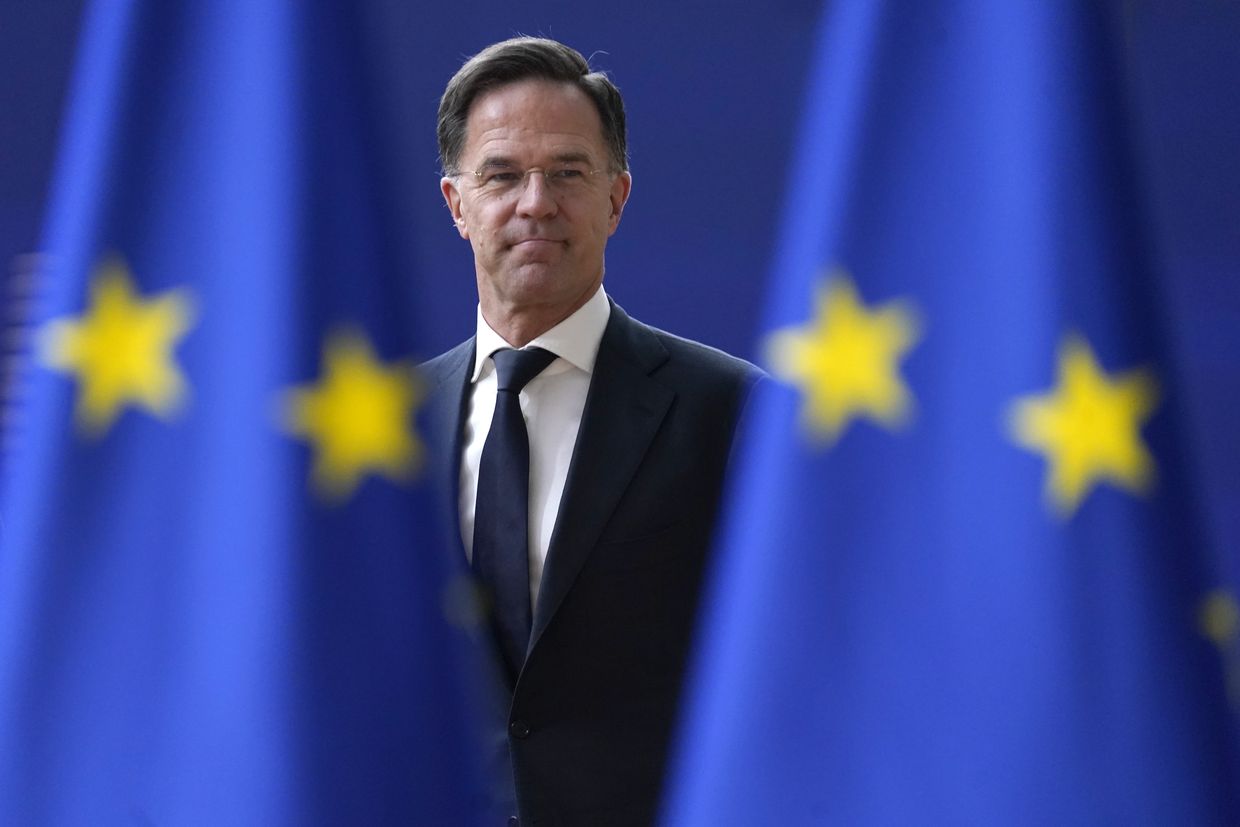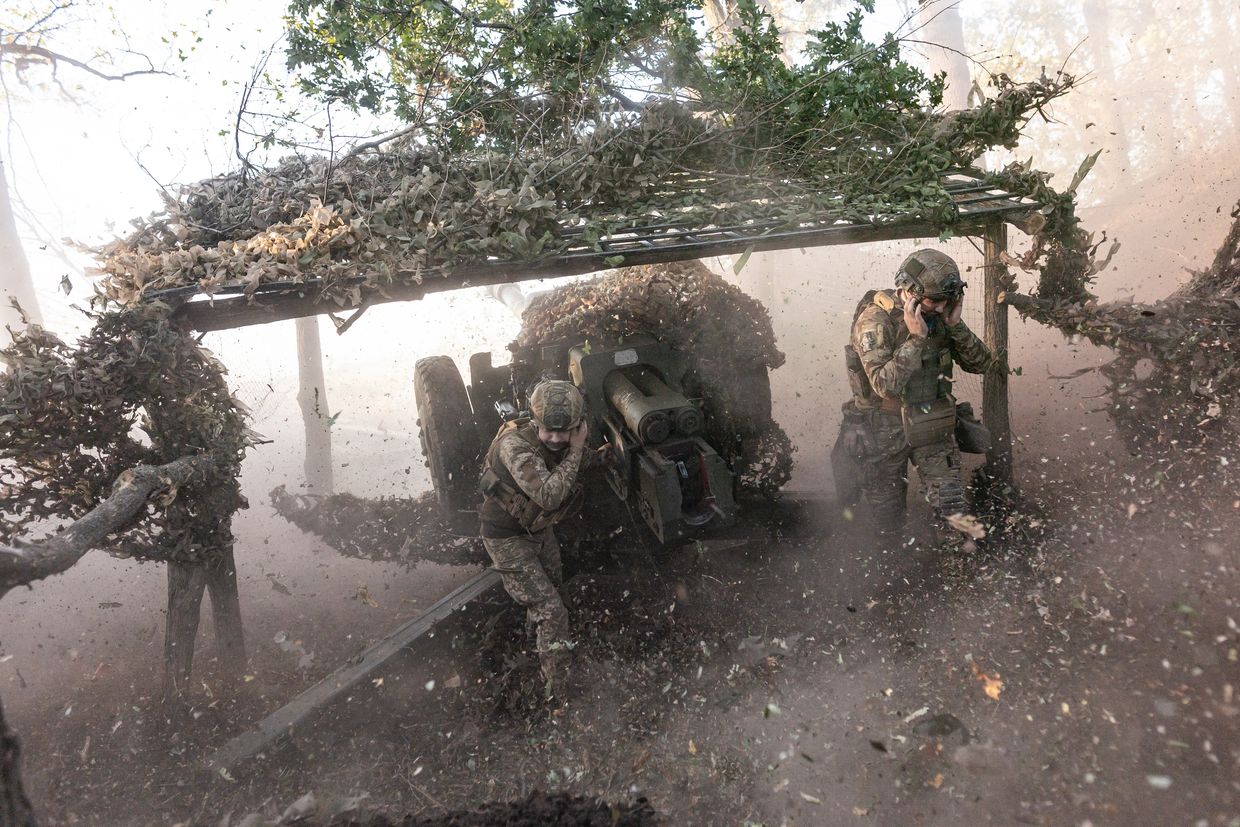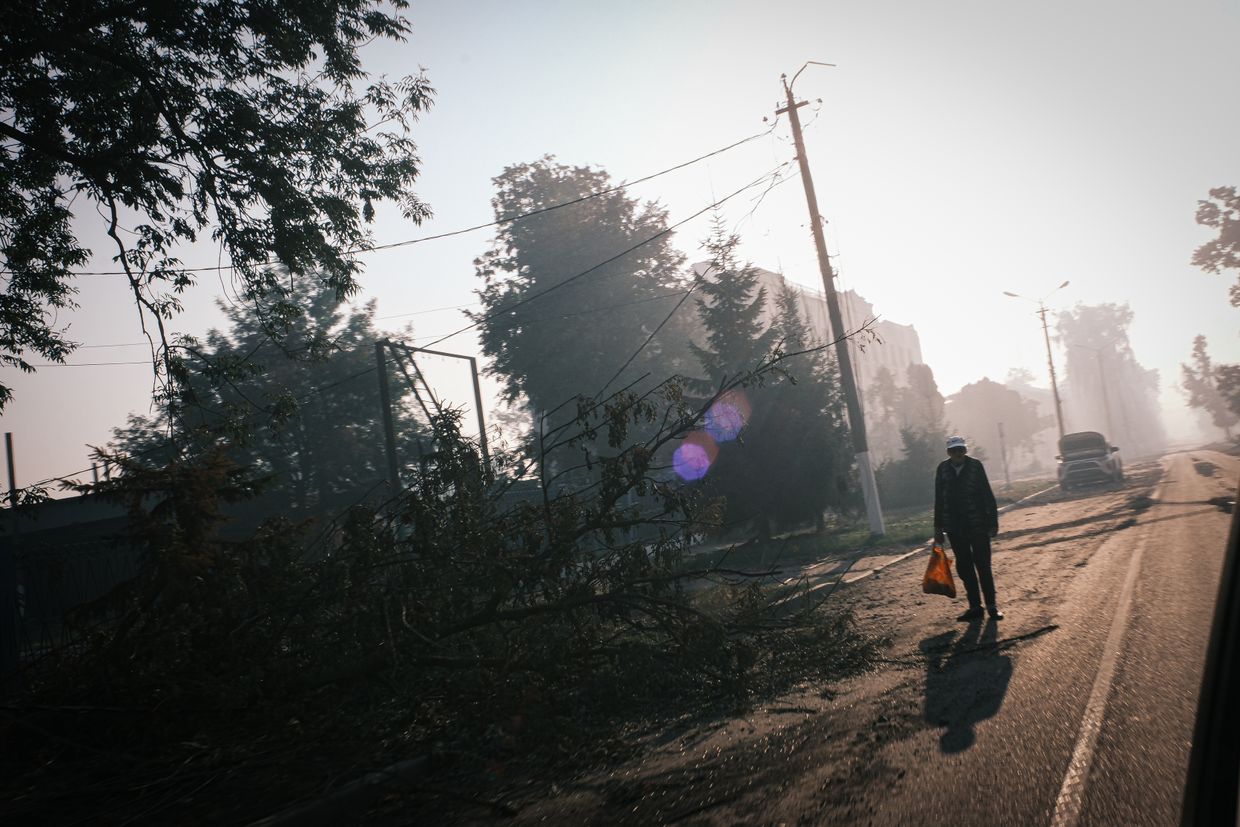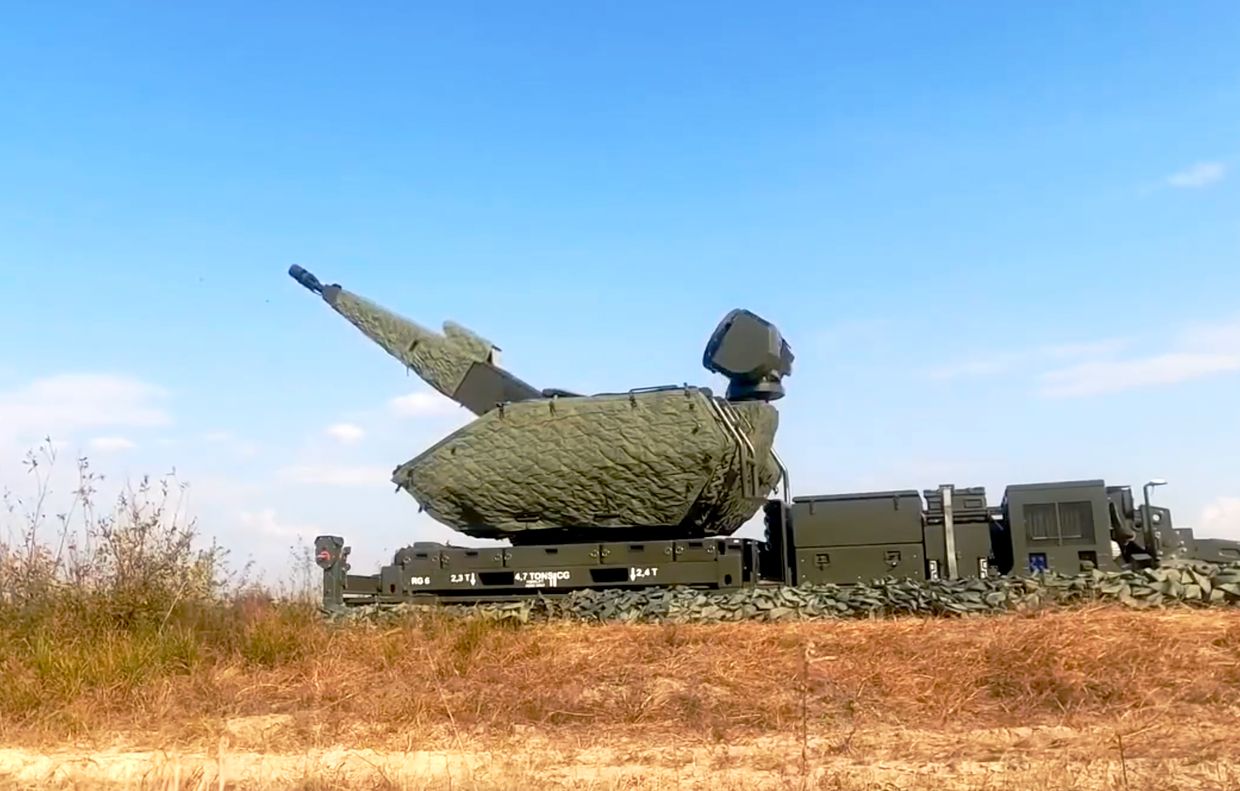Ukraine war latest: Ukraine strikes Russian airfield in Voronezh Oblast, source says

Key developments on Oct. 3:
- Ukrainian drones strike Russian airfield in Voronezh Oblast, SBU source says
- Zelensky calls for jointly intercepting Russian missiles during NATO chief Rutte's visit to Kyiv
- Russia attacking Kursk Oblast settlements with no Ukrainian troops present, Kyiv's military claims
- Ukraine receives Patriot air defense system from Romania
Drones operated by the Security Service of Ukraine (SBU) attacked the Borisoglebsk military airfield in Russia's Voronezh Oblast overnight on Oct. 3, a source in the Security Service of Ukraine (SBU) told the Kyiv Independent.
The attack was reportedly carried out in cooperation with Ukraine's Special Operations Forces.
The Russian Defense Ministry claimed its air defense destroyed 113 Ukrainian drones overnight, with 25 of them downed over Voronezh Oblast.
According to the source, Russian warehouses containing guided aerial bombs, hangars with Su-35 and Su-34 aircraft, and aviation fuel storage facilities were targeted.
The Kyiv Independent could not verify the report.
"The SBU continues to take active measures to reduce the enemy's ability to terrorize peaceful Ukrainian cities with fighter jets equipped with KABs," the source said.
Guided aerial bombs known as KABs are precision-guided munitions that have a shorter range than missiles, but are far cheaper to produce. The weapons are launched from aircraft within Russian territory, outside the range of Ukrainian air defense.
Russia used almost 900 guided bombs against Ukraine over the past week, President Volodymyr Zelensky said on Sept. 29.
Ukrainian forces have previously targeted military airfields, oil refineries, and ammunition depots in Voronezh Oblast.
Zelensky calls for jointly intercepting Russian missiles during NATO chief Rutte's visit to Kyiv
Newly appointed NATO Secretary General Mark Rutte arrived in Kyiv on Oct. 3 for a surprise visit.
Rutte's visit came days after he took the helm as the alliance's new secretary general. As a Dutch prime minister, he remained one of the staunchest of Kyiv's allies, taking the lead with initiatives like providing F-16 planes to Ukraine.
The NATO secretary general said on Oct. 1 that Ukraine would remain one of his top priorities amid Russia's ongoing war.
Speaking at a press conference with President Volodymyr Zelensky in Kyiv, Rutte reiterated that Ukraine's path towards NATO is "irreversible."
"Now we are focused on getting Ukraine invited to join the alliance. This is a very important step. It is difficult to achieve. We are focused on this result. We will do everything to get it," Zelensky said.
Following their meeting in Kyiv, Zelensky said that he and the new NATO secretary general discussed the implementations of "the decisions of the Alliance's Washington summit." The July NATO summit in Washington ended with the launch of the Ukraine Compact, a security framework signed by 32 allies.
The Ukrainian president also talked to Rutte about the possibility of jointly intercepting Russian drones and missiles.
"Jointly intercepting Iranian missiles is no different from jointly intercepting Russian missiles, and especially 'Shaheds,' which link the Russian and Iranian regimes," Zelensky said in the wake of fresh Iranian missile attacks against Israel.
The Western partners have thus far refused to help Ukraine in shooting down drones and missiles over its territory, fearing this could be seen as a direct involvement in the war.
The president also said that "Ukraine needs to strengthen its positions on the front line so that we can increase pressure on Russia for the sake of fair, real diplomacy." This is why the country needs a "sufficient quantity and quality of weapons, including long-range weapons, the provision of which, in my opinion, is being delayed by our partners," he added.
"Our key goal is Ukraine's full NATO membership. Ukraine can become the 33rd member of NATO. Ukrainians deserve this," Zelensky noted.
The invitation to join NATO is part of Ukraine's victory plan that was presented to U.S. President Joe Biden in late September.
Russia attacking Kursk Oblast settlements with no Ukrainian troops present, Kyiv's military claims
Russian forces continue striking settlements in Russia's Kursk Oblast even when there are no Ukrainian troops present, Vadym Mysnyk, a spokesperson for Ukraine's Operational Tactical Group Siversk, said on Oct. 3 on national television.
"The local population doesn't understand why they are being hit (by Russian forces) because the (Ukrainian) military is not even nearby. But the locals are suffering, they are forced to hide in basements for several hours and sometimes spend half a day there," Mysnyk said.
Ukraine's General Staff has been consistently reporting Russian attacks with missiles and aerial bombs on Kursk Oblast since the start of the Ukrainian offensive into Russian territory in early August.
Ukraine previously invited the U.N. and the International Committee of Red Cross (ICRC) to "join humanitarian efforts" in the Kyiv-held parts of Russia's Kursk Oblast. Moscow has denounced the move as provocation.
The Ukrainian military is reportedly providing water, food, and medicine to residents of Kursk Oblast areas controlled by Ukraine. Ukrainian forces are also trying to restore water and electricity, including using generators, according to Mysnyk.
"All this falls on the shoulders of the (Ukrainian) military because we comply with all the requirements of international humanitarian law and provide the local population with everything they need," he added.
Ukraine launched its cross-border incursion into Russia's Kursk Oblast on Aug. 6, claiming to have seized around 100 settlements and over 1,300 square kilometers (500 square miles).
Ukraine receives Patriot air defense system from Romania
Ukraine received a Patriot air defense system from Bucharest, Romanian Defense Ministry spokesperson Constantin Spinu confirmed for Radio Free Europe/Radio Liberty on Oct. 3.
"I thank every country that helps us with air defense. I am especially grateful to Romania for Patriot systems. Together, we can achieve even greater effectiveness — we can put an end to Russian terror by jointly destroying Shahed drones and missiles," President Volodymyr Zelensky said in his evening address a day earlier.
Hesitant at first, Bucharest decided to donate one of its Patriots in June. The Romanian government issued an order for the system's delivery last month.
Kyiv has been calling on its partners to provide additional air defense assets as Russia intensifies its strikes against cities and energy infrastructure.
The highly advanced Patriot systems have played a crucial role in protecting the Ukrainian sky. They are capable of downing even the most advanced ballistic missiles, such as Kinzhals.
Ukraine has received at least three Patriot systems from Germany and one from the U.S. Other countries, like the Netherlands and Spain, delivered individual launchers or missiles.
The U.S. and the Netherlands also pledged in June to deliver one additional system each, but no announcement on their arrival has been made so far.
The Netherlands is still looking for partner countries to provide components for a Patriot air defense system pledged to Ukraine, Dutch Defense Minister Ruben Brekelmans said in September.















